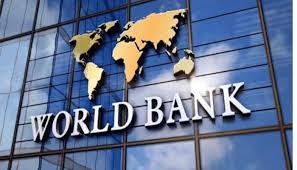By Nigerian News24 staff
Nigeria could see a dramatic 66% surge in customs revenue if the federal government eliminates arbitrary tariff exemptions and import bans, according to the World Bank’s latest Nigeria Development Update (May 2025 edition).
The report highlights how Nigeria’s current trade regime—characterized by high tariffs, import restrictions, and numerous non-tariff barriers—distorts market prices, fuels petrol smuggling, and undermines the effectiveness of customs enforcement. These inefficiencies, the World Bank warns, are costing the nation billions in lost revenue annually.
“Removing these distortions could significantly improve revenue collection,” the report stated, adding that a reform could play a vital role in Nigeria’s broader fiscal consolidation efforts.
The World Bank also pointed out that Nigeria imposes tariffs at roughly twice the average rate seen across sub-Saharan Africa. The country bans several imports outright and uses a patchwork of policy exceptions that lead to inconsistencies and encourage smuggling. As a result, customs collections fall short of their potential.
With Nigeria’s naira now reflecting a more competitive exchange rate, the World Bank argues that the timing is right for a strategic shift in trade policy. “Domestic producers are better placed to compete with imports and leverage export opportunities,” the report said. However, to strengthen production and competitiveness, firms need easier access to imported inputs, including intermediate goods and services.
The Bank advised aligning Nigeria’s tariff structure with the ECOWAS Common External Tariff (CET)—starting with food products, which directly affect household welfare. The CET framework requires uniform tariffs and import conditions across all ECOWAS member states for goods from outside the region.
Impact on Consumers and the Poor
The World Bank also warned that Nigeria’s restrictive trade measures disproportionately affect low-income households. “Trade restrictions inflate consumer prices, especially for essential goods like food and medicines that poor Nigerians rely on,” it noted.
On average, import bans raise prices by 5.8%, hitting lower-income households the hardest. Lifting these bans could reduce poverty by up to 2.6 percentage points, while also easing inflationary pressures and boosting consumer purchasing power.
Global Trade Concerns
The recommendations come weeks after the United States Trade Representative criticized Nigeria’s ban on 25 specific items, saying the move limits access for American exporters and contravenes fair trade practices.
Meanwhile, the Nigeria Customs Service reported record revenue of ₦1.75 trillion in the first quarter of 2025, surpassing its target of ₦1.65 trillion. This represents nearly a 30% increase from ₦1.35 trillion collected in Q1 2024, according to Comptroller-General Adewale Adeniyi.
Despite this growth, the World Bank contends that there is still significant untapped revenue potential—if Nigeria can realign its trade policies with broader economic and social priorities.




